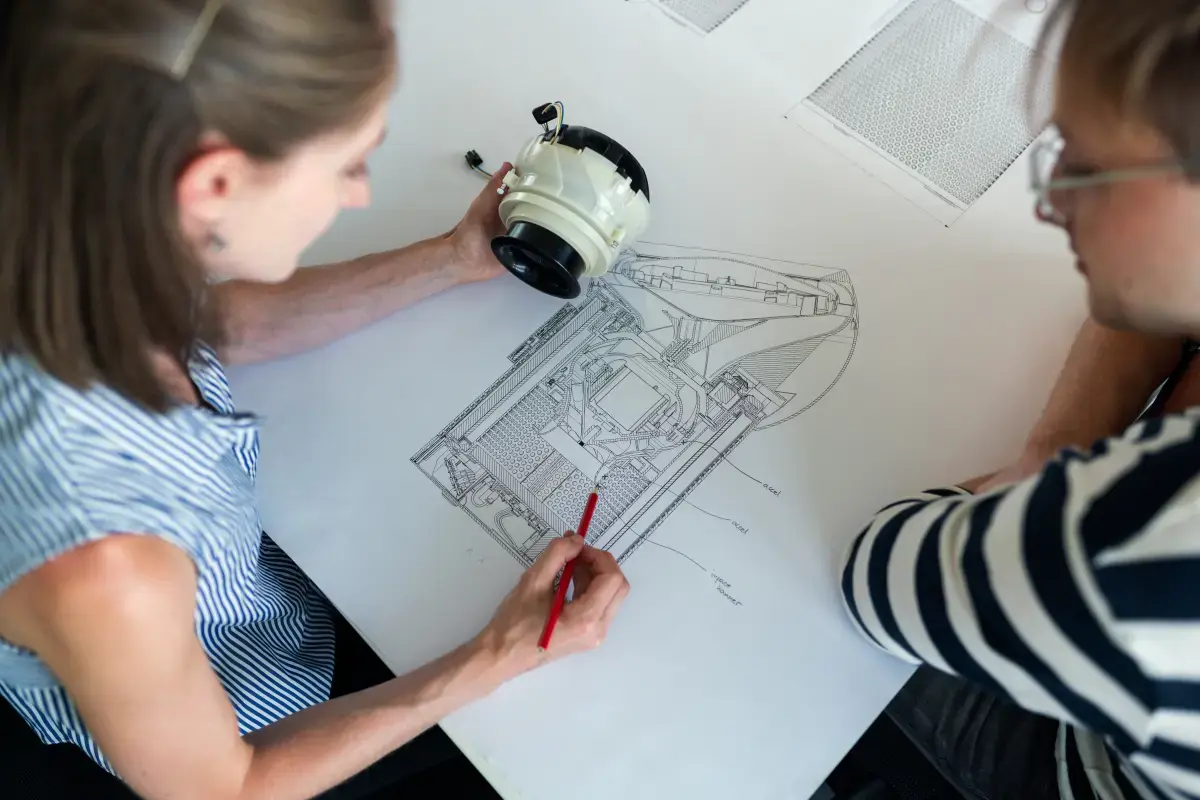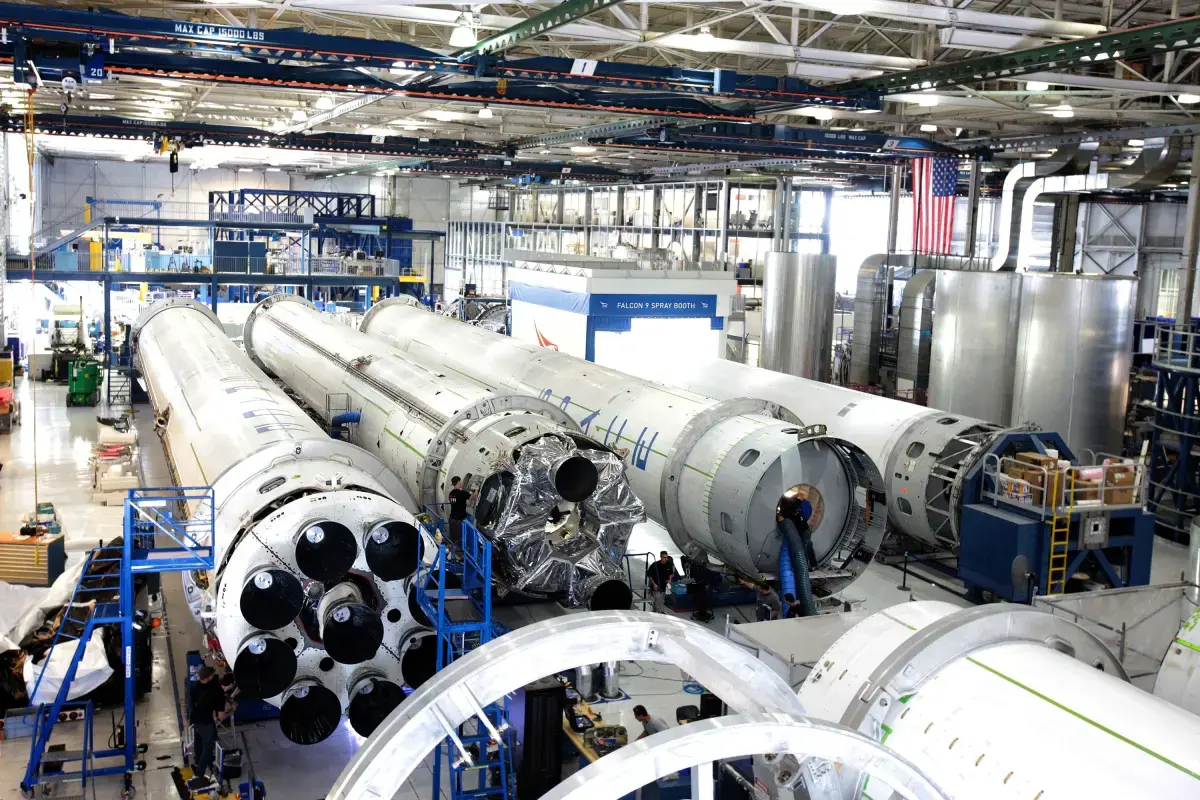
Engineer Job Description
What is a Engineer Professional?
An engineer is someone who uses science and math to solve problems. Engineers work in many different fields, including aeronautical, civil, electrical, and mechanical engineering. They often work on teams, and their job is to figure out how to make things work better. Engineers use their knowledge of science and math to solve problems. For example, a civil engineer might design a bridge that is safe and will not collapse. An electrical engineer might figure out how to make a computer run faster. Engineers often use computers to help them design. They also use math to calculate how much a material can hold or how strong it is. Engineers work in many different industries. Some engineers work in the aerospace industry and design airplanes. Others work in the automotive industry and design cars. Still others work in the healthcare industry and design medical devices.

What does a Engineer Expert do?
AEngineers often specialize in one particular type of engineering. For example, a mechanical engineer might specialize in designing engines, while a civil engineer might specialize in designing bridges. Most engineers have a bachelors degree in engineering. Some engineers also have a masters degree or a doctorate. To become an engineer, you typically need to complete a four-year engineering program. After you graduate from college, you will need to get a job with an engineering firm. You will usually start out as an entry-level engineer. As you gain experience, you will be able to take on more responsibility and eventually become a project manager or an engineering executive.

What are the Skills of a Engineer?
A successful engineer typically has strong analytical and problem-solving skills, as well as a solid understanding of the scientific method. They must be able to communicate their findings clearly, both in writing and verbally. Additionally, they must be able to work well with others, as engineering is often a team-based profession. engineers need to have a strong understanding of mathematics and physics, as these are the foundation of engineering. They must be able to use this knowledge to solve complex problems. Additionally, they must be familiar with computer-aided design (CAD) software, as this is commonly used in engineering. engineers must be able to think creatively to develop new solutions to problems.

What makes an Expert Engineer?
They must also be able to troubleshoot existing systems to identify and solve problems. engineers must have strong project management skills, as they are often responsible for overseeing the construction of various projects. They must be able to plan and coordinate the work of their team, as well as keep track of deadlines and budgets. engineers need to be lifelong learners, as the field of engineering is constantly evolving. They must be willing to keep up with new technologies and trends in order to be successful.

What level of Experience & Qualifications are required to be a Engineer?
Industry Experience: • At least 5 years of experience in the engineering field, with a focus on designing and implementing complex systems. • Demonstrated ability to develop innovative solutions to challenging problems. • Extensive knowledge of industry best practices and standards related to engineering operations. Training: • Completion of relevant educational programs or certifications that are applicable to the role such as Certified Engineering Technologist (CET) designation or equivalent. Qualifications: • Professional Engineer (PEng) designation from a recognized professional association is preferred but not required depending on the specific job requirements. Education: • Bachelor’s degree in an engineering discipline from an accredited university or college; master’s level education may be beneficial for some roles.

What is the Salary of a Engineer?
The salary expectations of an engineer depend on a variety of factors, such as experience, qualifications, location and the type of job. Generally speaking however, salaries tend to increase with seniority. For a junior engineer (with 0-3 years’ experience), salaries typically range from around $45-$65K per year in the US and Canada. This may vary depending on the industry or sector they are employed in; for example software engineers can expect higher pay due to their specialist skillset. Mid level engineers (4-7 years’ experience) usually command a salary between $60-$90K per annum. Again this varies by sector; for instance some oil and gas companies will offer higher rates than other industries because engineering roles here require more specialized knowledge and skill sets that come with greater responsibility. Senior engineers (8+ years’ experience) can generally earn anywhere from $85-$150K annually depending on their specific role within an organization or company. Highly experienced professionals who have worked at executive levels may even command upwards of $200K per year if they possess additional expertise beyond what is required for normal engineering duties e.g., business management or project management capabilities etc.. Additionally, it should be noted that certain sectors such as finance could pay significantly more than others due to increased competition among employers for top talent in these areas which tends to drive up wages accordingly

What are the Working Conditions for a Engineer?
The general working conditions for an engineer typically involve a combination of office work, fieldwork and travel. Office work may include designing, drafting, planning and researching projects. Fieldwork may involve inspecting sites or equipment to ensure compliance with regulations or specifications, as well as performing tests on materials or systems. Travel is usually required in order to visit potential project sites or attend meetings with clients. Engineers generally have regular business hours during the week; however, there are often times when overtime is necessary due to deadlines or other time-sensitive tasks that must be completed in order to meet client expectations. Depending on the type of engineering job being performed, engineers may also face hazardous environments such as construction sites where they need additional safety gear and precautions while working outdoors in extreme weather conditions. Engineers should always adhere to all safety protocols set by their employers when engaging in any kind of fieldwork activity

What are the roles and responsibilities of a Engineer?
To design and oversee the construction of new buildings, bridges, roads, and other structures
To ensure that these structures are built to code and are safe for public use
To inspect existing buildings and structures to assess their safety and to make recommendations for repairs or demolition
To design and oversee the construction of dams, levees, and other water-related structures
To design and oversee the construction of power plants and other energy-related facilities
To design and oversee the construction of transportation systems, including highways, railways, airports, and mass transit
To design and oversee the construction of sewage and waste treatment facilities
To design and oversee the construction of communication systems, including telephone and Internet networks
To design and oversee the construction of computer networks
To design and oversee the construction of factories and other industrial facilities
To design and oversee the construction of hospitals and other healthcare facilities
To design and oversee the construction of schools and other educational facilities
To design and oversee the construction of office buildings and other commercial facilities
To design and oversee the construction of recreational facilities, such as parks and stadiums
To design and oversee the construction of energy-efficient buildings
To design and oversee the construction of environmentally-friendly buildings
To research and develop new building materials and construction methods
To develop plans for disaster relief and reconstruction in the event of a natural or man-made disaster
To teach courses in engineering at a college or university
To write books or articles about engineering

Where can I find Engineer jobs?
- Create a profile on gigexchange and promote your Engineer skills to advertise you are Open to New Work Opportunities
- Ensure your Resume (or CV), or online work profile is up to date and represents your skills and experience. Ensure your reputation reflects your ability & attitude.
- Apply for Engineer Jobs advertised on gigexchange.
- Practise Engineer interview techniques to ensure you represent your personality and ability succinctly and confidently.
- Accept the job offer if the salary meets your expectations and the employer mission and purpose reflects your core values.
Jobs
What are the best job boards for Engineering jobs?

How can I hire Engineer staff online for my business?
The best job board for recruiting Engineer experts is gigexchange.com. Advertise full-time, part-time or contract jobs to find, hire & recruit trusted, experienced and talented Engineer candidates near you.

Are Engineer roles in demand in 2026?
Engineer experts are still in high demand in 2026. If you are an experienced Engineer or looking to train and become one. The job market is looking strong for Engineer jobs near me.